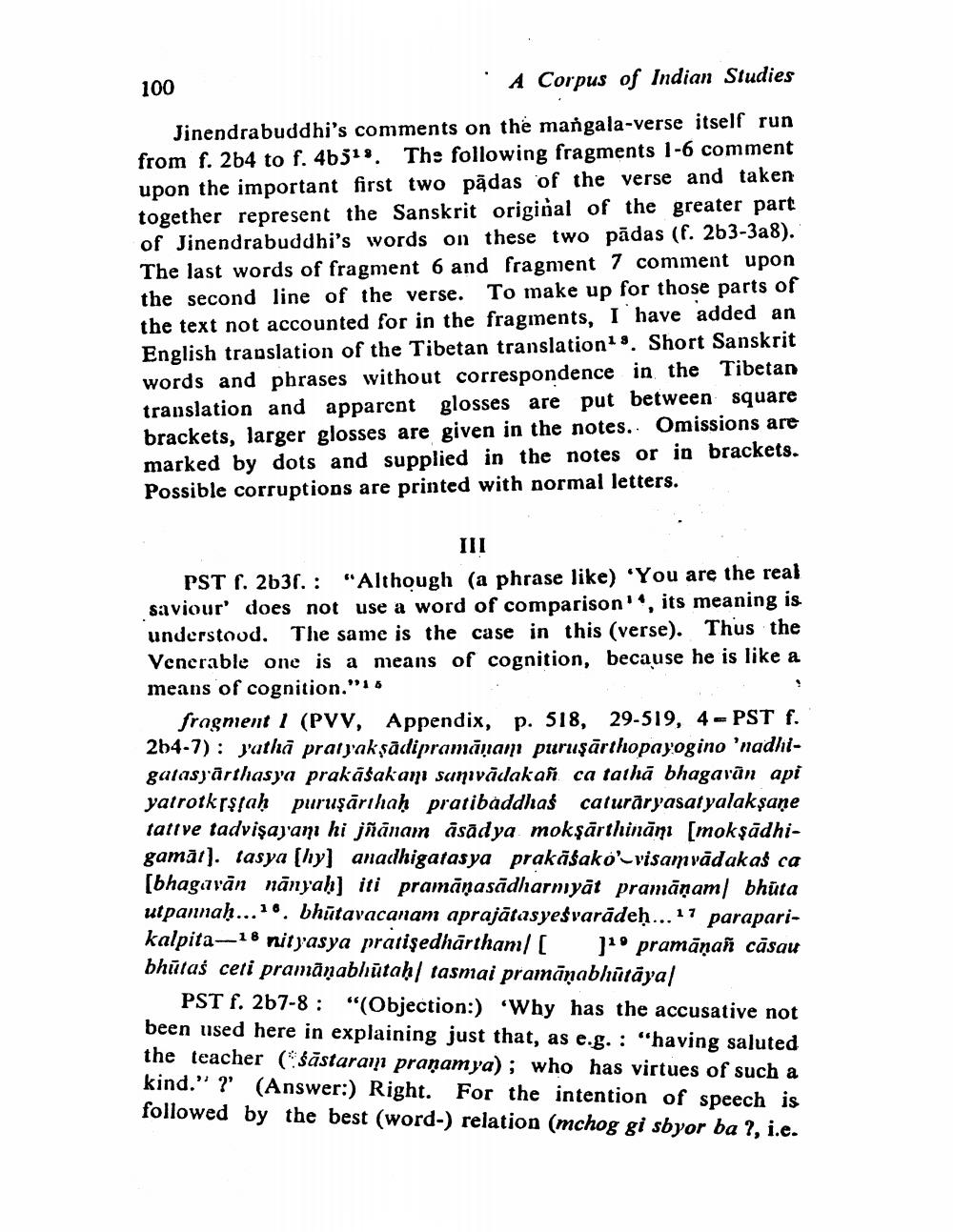Book Title: Sanskrit Fragments Of Jnendrabuddhis Visalamalavati Author(s): Ernst Steinkellner Publisher: Ernst Steinkellner View full book textPage 5
________________ 100 · A Corpus of Indian Studies Jinendrabuddhi's comments on the mangala-verse itself run from f. 264 to f. 4b313. The following fragments 1-6 comment upon the important first two pādas of the verse and taken together represent the Sanskrit original of the greater part of Jinendrabuddhi's words on these two pādas (f. 263-3a8). The last words of fragment 6 and fragment 7 comment upon the second line of the verse. To make up for those parts of the text not accounted for in the fragments, I have added an English translation of the Tibetan translationis. Short Sanskrit words and phrases without correspondence in the Tibetan translation and apparent glosses are put between square brackets, larger glosses are given in the notes.. Omissions are marked by dots and supplied in the notes or in brackets. Possible corruptions are printed with normal letters. PST f. 2b3r.: “Although (a phrase like) "You are the real saviour' does not use a word of comparison', its meaning is understood. The same is the case in this (verse). Thus the Venerable one is a means of cognition, because he is like a means of cognition."16 fragment 1 (PVV, Appendix, p. 518, 29-519, 4-PST f. 264-7): pathā pratyaksādipramānam puruşārthopayogino 'nadhigatasjärthasya prakāśakan sumvādakañ ca tathā bhagavān api yatrotkrstaḥ puruşārıhaḥ pratibaddhaś caturāryasatyalaksaņe tative tadvişayani hi jñānam asādya mokşarthinānı [moksādhigamāt). tasya (hy) anadhigatasya prakāśako visam vādakaś ca (bhagavan nānyaḥ] iti pramāņasādharmiyāt pramāņam/ bhūta utpannaḥ...16. bhūtavacanam aprajātasyesvarādeḥ... 17 paraparikalpita-18 nityasya pratişedhartham/ [ ]1pramānañ cāsau bhūtaś ceti pramāṇabhūtah/ tasmai pramāṇabhūtāya/ PST f. 267-8 : "(Objection:) Why has the accusative not been used here in explaining just that, as e.g. : "having saluted the teacher (śāstaram pranam ya); who has virtues of such a kind." ? (Answer:) Right. For the intention of speech is followed by the best (word) relation (mchog gi sbyor ba ?, i.e.Page Navigation
1 ... 3 4 5 6 7 8 9 10
